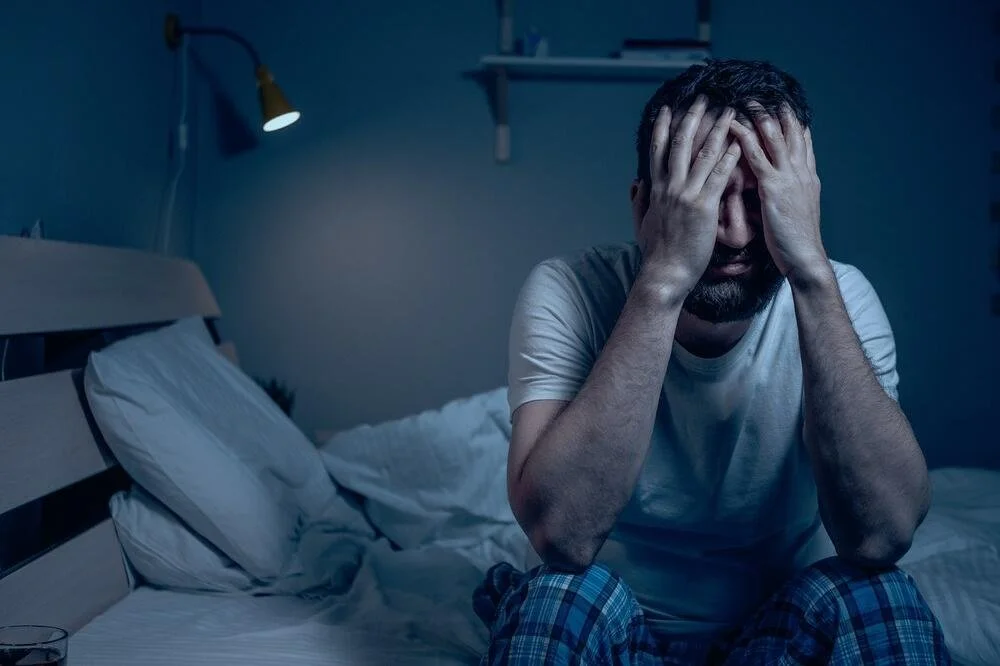How Acupuncture Can Help You Sleep Better
If you’re curious about acupuncture for insomnia in NW Calgary, you’re in the right place — poor sleep is one of the most common health concerns I see in clinic. In Traditional Chinese Medicine (TCM), insomnia isn’t just about falling asleep — it’s about understanding why your mind won’t rest. Whether it’s stress, hormonal imbalance, or an overactive nervous system, acupuncture can calm the body, quiet racing thoughts, and help restore natural sleep rhythms.
Why Sleep Problems Happen (TCM Perspective)
Sometimes, it's clear why sleep isn't great – like having a weird sleep schedule, drinking caffeine too late, an uncomfortable bed, too much device time and over-stimulation. But other times, the reasons are hidden behind other problems. This is when acupuncture takes centre stage. Using a holistic ethos, an acupuncturist can find the root reasons for sleep issues.
Types of Insomnia & What They Mean
Not all insomnia is the same — and in Traditional Chinese Medicine (TCM), the type of insomnia can tell us a lot about what’s going on in the body. Difficulty falling asleep often points to excessive stress, overthinking, or a “busy mind,” which can signal Heart or Liver Qi disharmony. Waking up between 1–3 a.m. is often linked to Liver Qi stagnation or Liver Yin deficiency, especially if it’s paired with irritability or vivid dreams. Waking too early and being unable to fall back asleep can be connected to Heart or Kidney Yin deficiency — essentially, the body isn’t anchored enough to stay in deep rest. By identifying the pattern of insomnia, we can tailor acupuncture and lifestyle strategies to restore balance and help you get the deep, nourishing sleep your body needs.
How Acupuncture Improves Sleep
Acupuncture works on both the mind and body to create the conditions for deep, restorative rest. From a biomedical perspective, research shows that acupuncture helps regulate the nervous system, lowering stress hormones like cortisol and increasing natural melatonin production — the hormone that signals your body it’s time to sleep. It also improves circulation, reduces muscle tension, and calms an overactive mind. From a Traditional Chinese Medicine perspective, acupuncture brings Yin and Yang back into balance, nourishes the Heart and Kidney systems, and smooths Liver Qi — all of which are essential for falling asleep easily and staying asleep through the night. Many people notice that their sleep begins to improve after just a few sessions, with longer-term treatment helping to reset the sleep-wake cycle entirely.
When to Seek Treatment
If insomnia is affecting your daily life — leaving you tired, irritable, or struggling to focus — it’s a sign that your body and mind need support. Even occasional sleepless nights can become chronic if patterns aren’t addressed. Acupuncture offers a gentle, natural way to restore balance, calm the nervous system, and reset your sleep cycle. Don’t wait until sleep deprivation takes a toll on your health; early treatment can help you feel more rested, alert, and energized. Book a consultation today and take the first step toward better sleep.
FAQs About Acupuncture for Insomnia
Q: How many acupuncture sessions will I need to see improvement?
A: Many people notice better sleep within 3–5 sessions. For chronic or long-standing insomnia, a longer treatment plan may be recommended to reset the sleep-wake cycle and address underlying patterns.
Q: Does acupuncture hurt?
A: Acupuncture uses very thin needles, and most patients report little to no discomfort. Some feel a gentle tingling, warmth, or a sense of deep relaxation during treatment.
Q: Can acupuncture be combined with other sleep aids?
A: Yes! Acupuncture works well alongside lifestyle strategies, mindfulness, and even natural supplements or medications — but it’s best to discuss your full regimen with your practitioner to ensure a safe, coordinated plan.
Q: How long does each session last?
A: Typical sessions are 60 minutes. Most of that time is gentle treatment and relaxation, allowing your body to respond fully to acupuncture.
We all love and need sleep. While the cause may not be immediately clear, be assured your acupuncturist will get to the root of it.
If the yearning for restorative slumber beckons, and the prospect of acupuncture’s effects intrigue you, please book a session with me. If you’re still on the fence, book a free 20 minute session and we can chat about your sleep and see if acupuncture might be a good choice for you.
Do you live in Capitol Hill, Mount Pleasant, Briar Hill, West Hillhurst & surrounding NW Calgary, and are ready to sleep better? Book Your Acupuncture Session Today!

